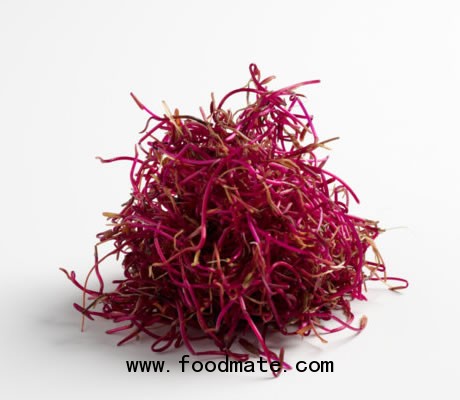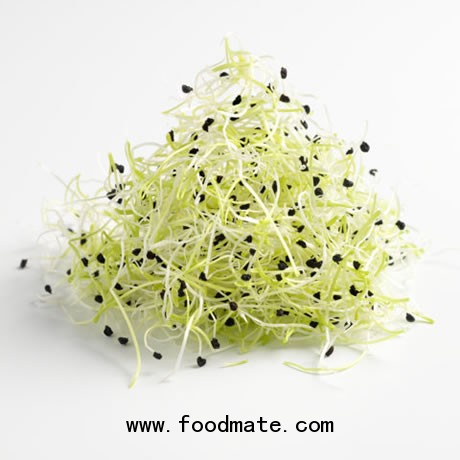
Breeder Wim Bouden, who started sprouting as a hobby and ended up a professional, says carving out a niche in the industry wasn’t easy. “There was a lot of stiff competition coming from the Netherlands, but we were able to overcome all obstacles and transform ourselves into a respectable business.
They key to success is our focus on quality. Even though it hurts to sometimes throw away some of the produce, if it doesn’t meet our standards, we won’t sell it. One of the advantages we have is that we’re pretty close to some of the major auctions, like Mechelen.
In light of the fact that buyers will always prefer fresh, this is an important strategic advantage. Also, we are the only sprouting company attached to the REO auction.”

Kiem-X takes sprouting seriously: cultivation is carefully shielded from daylight and outside influences, keenly mimicking subterranean conditions.
“The great thing about sprouting is that you’re not bothered by weather and diseases,” says Wim. “It makes it easier for us to go organic, for instance, and get the maximum amount of health out of the product.” Vegetable sprouts are extremely healthy and therefore easily marketable, but in some ways the market is limited as well. “It is very hard to introduce new products or varieties,” admits Wim. “I’ve experimented with fennel and broccoli, but you mostly end up eating these yourself. People tend to stick to what they know: leek, alfalfa, radish and beetroot.”
In spite of the success the sprouting community had to deal with some serious setbacks in recent times. Last year, during the EHEC crisis, the company took some punches. “The timing couldn’t have been worse: We’d just moved to the new location and spent a lot of money getting things organised. Then we were hit by a 50% drop in sales. It took 6 months to recover.”
Yet, Wim is optimistic. “We are now doing better than before the EHEC crisis. There’s ample room for expansion and I think things will only get better.”






